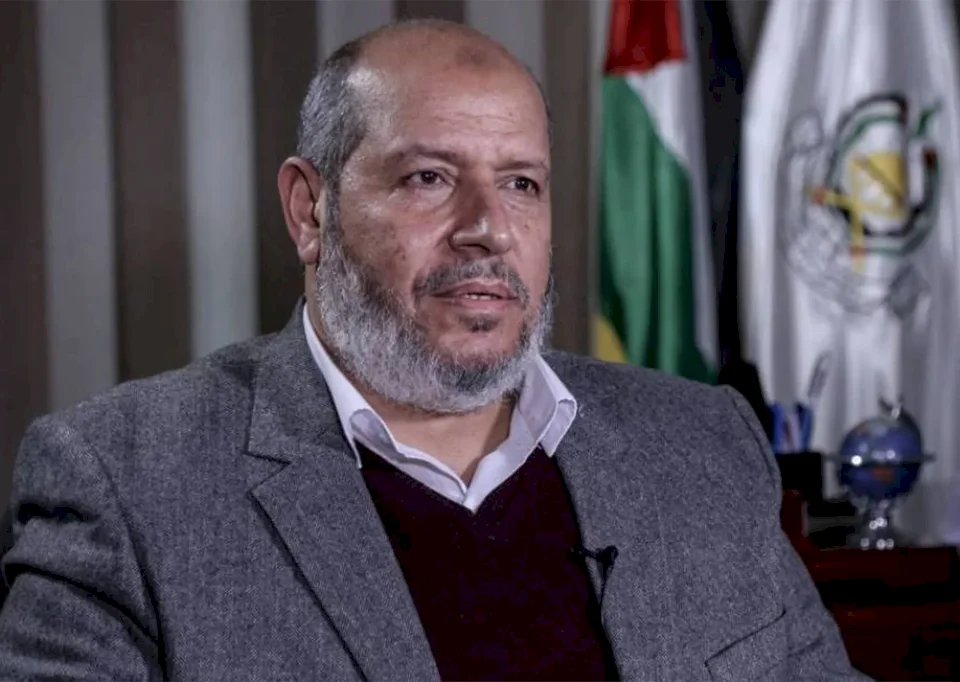
A Hamas Delegation in Cairo to Discuss the Second Phase of the Ceasefire in Gaza
SadaNews - A leadership delegation from Hamas arrived in Cairo to hold talks with Egyptian officials regarding the arrangements for the second phase of the ceasefire agreement in the Gaza Strip, according to two leaders from the Palestinian movement speaking to Agence France-Presse.
Hamas leader Taher Al-Nounou said: "A leadership delegation headed by Khalil Al-Hayya arrived in Cairo last night, where important meetings are taking place today with officials from the Egyptian intelligence service related to the ongoing violations and breaches of the ceasefire agreement by Israel."
He added that the meetings "also aim to discuss the arrangements related to the commencement of negotiations for the second phase of the ceasefire agreement between Hamas and Israel, which came into effect on October 10."
The ceasefire agreement was reached, mediated by Egypt, the United States, and Qatar, with Turkey joining in, after two years of destructive war. The agreement was based on US President Donald Trump's plan to stop the war. Its first phase stipulated the cessation of military operations and the release of all hostages held in the Gaza Strip since the start of the war, and the handover of deceased bodies in exchange for prisoners and bodies of Palestinians. It also specified Israeli withdrawals from populated areas in the strip and the entry of aid into the besieged enclave.
Al-Nounou pointed out that the movement's delegation "will inform our brothers in Egypt about the details of the violations and crimes being committed by the occupation, the latest of which occurred yesterday, Saturday, under flimsy pretexts."
On Saturday, at least 21 martyrs fell due to Israeli strikes, according to the civil defense in Gaza, while the occupation claimed that its airstrikes were in response to a Hamas attack, announcing the elimination of five members from the movement.
According to informed sources in Hamas, the movement continues its search operations to find three bodies of Israeli hostages still in the Gaza Strip, which will be the last batch to be recovered as part of the exchange agreement for hostages and bodies between the movement and Israel.
Another Hamas leader, who spoke to AFP on the condition of anonymity, confirmed that the meetings with Egyptian officials would discuss "arrangements and the formation of an independent Palestinian technocrat committee that will oversee the administration of the Gaza Strip."
He noted that bilateral meetings will be held between the Hamas delegation and leaders of other Palestinian factions such as Islamic Jihad, the Popular and Democratic Fronts, popular resistance committees, and the National Initiative, to "discuss the internal Palestinian situation and arrangements for the administration of the Gaza Strip and its future."
He also pointed to ongoing efforts to arrange a meeting soon between Fatah and Hamas in Cairo.
Last year, Hamas and Fatah agreed to form an independent Palestinian administrative committee, consisting of competent figures who do not belong to any Palestinian faction, to temporarily manage the Gaza Strip after the end of the war.
Trump's plan, recently endorsed by the Security Council, included the formation of a Palestinian technocrat committee with international experts to manage the daily affairs of Gaza, in addition to an international stabilization force to maintain security and monitor the ceasefire, and a "Peace Council" overseeing all of this headed by Donald Trump.
Egyptian-Qatari Contact
The Egyptian Foreign Ministry announced on Sunday that Foreign Minister Badr Abdel-Atty held a phone conversation with Qatari Prime Minister Mohammed bin Abdul Rahman Al Thani, focusing on the importance of stabilizing the ceasefire in the Gaza Strip "and preventing any breaches that might undermine ongoing efforts."
The Egyptian minister emphasized, according to the statement, "the continuation of close coordination between Egypt, Qatar, Turkey, and the United States to ensure the full implementation of the ceasefire agreement reached in Sharm El Sheikh in Egypt, and the necessity of implementing the recent Security Council resolution, empowering the international stabilization force to perform its tasks."

Intensive Military Communications Between Tel Aviv and Arab Capitals

Trump: I have agreed to talk to Iran

Netanyahu: The Attack on Tehran Will Intensify in the Coming Days

America Acknowledges the Death and Injury of 8 Soldiers in the War on Iran

Iranian Revolutionary Guard Bombards US Aircraft Carrier with 4 Missiles

Bezhakian: The Transitional Leadership Council after Khamenei "Has Started Its Work"

American "Fears" Prompt Them to Accelerate the War on Iran.. What Are They?

